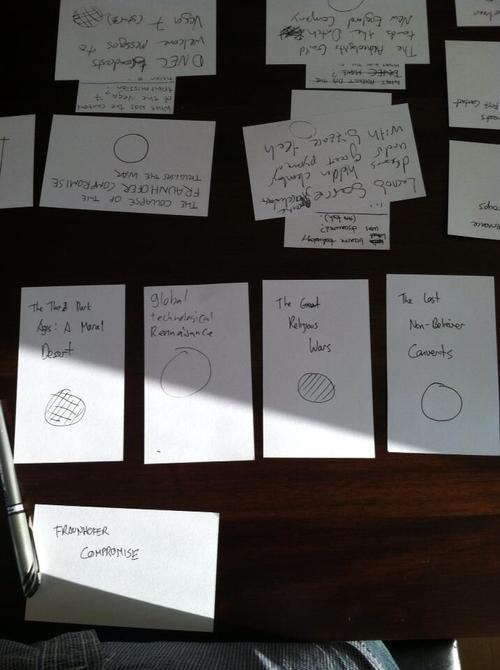Microscope - awesome game (and worldbuilding tool)
This weekend I had the pleasure of playing Microscope, a collaborative storytelling game. Over the course of the game, the players build and explore a new world with fractal complexity.
There is no board; players take turns writing new information about the world on index cards. Top level cards are Periods which take place on the scales of decades, centuries, or eons. The next level down are Events. Events are always within Periods. Events can contain multiple Scenes. Where as Events and Periods are often one line descriptions, Scenes start with a question, stage, and characters and then the players roleplay until they reach an answer to the question.
There are some other details but in general players take turn adding new cards of any type, inserting new Periods, Scenes, and Events between existing ones. Players have near complete freedom to flesh out the world - they just can’t contradict anything that’s been established already and need to stay within certain norms established at the onset of the game.

Microscope is a blast to play. There are no win conditions but a group of us spent a few hours Saturday afternoon and had a great time exploring a very bizarre world of aliens, consumer debt, pyramid schemes, the founding of a religion, and board room intrigue.
Microscope is an excellent tool for building a rich diegesis. With little modification it could be used to build out an interesting world to serve as setting for a novel, video game, or RPG. I’m eager to try just that once I have a world that need building.
When I have a chance, I’ve also been told to check out Shock - a similar collaborative storytelling game… If I do, I’ll write it up here.